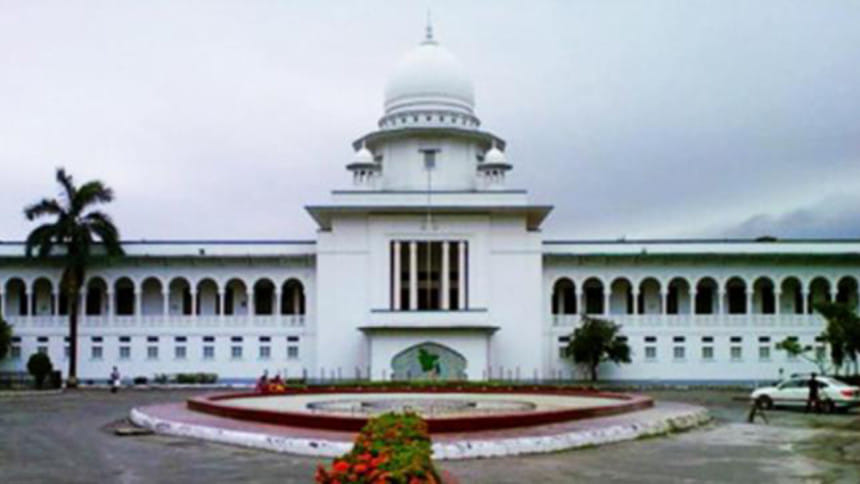Special Laws: Goal of fast-track trial still unmet

Justice is often delayed even in cases filed under some special laws because of non-implementation of relevant provisions for a speedy completion of the trials.
These laws involving rape and torture of women and children, murder, extortion, corruption and narcotics have been formulated to give relief to the litigants within a very short time like two, three or six months.
But they appear to have lost significance as the cases filed under them are not being settled within the required time limits. Even in some cases, it took several years to finish trial proceedings.
Considering the situation, the High Court has issued multiple directives giving time limits to the lower courts concerned to end the trials. However, most of the directives were not being complied with properly.
According to a Supreme Court study report, more than 38,000 cases filed under the Women and Children Repression Prevention Act-2000 have been pending with lower courts for more than five years.
As of March 31 this year, a total of 1,64,551 cases under this law were pending with courts across the country, the report says.
A trial court is supposed to finish the trial proceedings of such a case in six months, according to section 20(3) of the law.
The report also says 1,64,794 narcotics-related cases were pending with lower courts till March 31 and 32,215 of those for more than five years.
And 17,25,270 criminal cases including those over corruption are waiting to get disposed of at lower courts and 2,36,116 of them remained pending for more than five years till March 31.
Advocate Khurshid Alam Khan, editor of the Dhaka Law Reports (DLR) and chief counsel for the Anti-Corruption Commission, told The Daily Star on July 12 that the provisions of most of the special laws fixing the timeframe for finishing the trial proceedings of the cases have become virtually ineffective.
Trials of a corruption case filed under the Anti-Corruption Commission Act, 2004 and a case filed under the Speedy Trial Tribunal Act, 2002 are supposed to be finished in 60 days and 135 days respectively after the courts concerned accept them for trial as per the Criminal Law Amendment Act 1958.
The cases filed under the Women and Children Repression Prevention Act-2000 and Drug Control Act-2018 have to be disposed of in 180 days and 135 days respectively after the courts concerned take their charges into cognizance.
But the trial proceedings of such cases do not end within the specific time limit for many reasons, including that the investigation reports are not submitted and the witnesses don’t appear before the trial courts.
Besides, the courts are loaded with a huge number of cases, Khurshid Alam added.
As of March 31 this year, a total of 35,82,347 cases including the criminal ones have been pending with courts including the Appellate and High Court Divisions of the SC, according to the study report.
Eminent jurist Dr Shahdeen Malik says it is hardly the fault on part of the courts for the trials not being completed within the time fixed by the law because the law enforcement agencies are failing to complete their tasks within the stipulated time.
For example, laws say police must submit the investigation report of the cases in 90 days, but they don’t complete the task within the specific period of time. And one can hardly hold them accountable for this failure, he told this correspondent on July 12.
Lawmakers have not formulated provisions against the law enforcing agencies for their failure to complete the investigation on time.
The courts also adjourn the hearing of the cases when the witnesses are not produced before them, Shahdeen Malik said, adding that all the issues are very complex which have no easy solution.
Contacted, Law Minister Anisul Huq told The Daily Star that most of the provisions of laws fixing the timeframe for finishing the cases are directory, not mandatory.
The time limits are considered after the courts take cognizance of the charges, but the courts sometimes cannot finish the trial proceedings within the timeframe specified by the laws even after starting the trial of the case, he said.
“We are trying to sort out the issues and trying to solve them. There is no necessity to update the laws for resolving the problems,” Anisul Huq, also a criminal law expert, added.
The HC on July 18 this year issued seven directives to accelerate trials of the cases filed under Women and Children Repression Prevention Act 2000.
The HC bench of Justice M Enayetur Rahim and Justice Md Mostafizur Rahman ordered the judges of women and children repression prevention tribunals across the country to complete within six months the trials of cases filed for rape and murder after rape.
The HC judges observed that even three to four-year old children are raped and murdered after rape but trials of those incidents are not finished in time, which is very disappointing and regrettable.
While passing orders on the appeals in three rape cases, the HC asked the tribunal judges to hold continuous hearing of the cases on every working day under section 20 of the Women and Children Repression Prevention Act 2000.
The same HC bench on February 5 this year directed the lower courts concerned to finish the trial proceedings in all narcotics-related cases within six months.
The HC observed that the trial proceedings in such cases remain unfinished for a long time as the witnesses are not produced before the courts and their statements are not recorded on scheduled dates.
Such a case could be disposed of in a single day if the judge, the investigation officer and the public prosecutor sincerely deal with it, the HC bench observed.
The bench on February 26 directed the district and sessions judges to finish in the next six months the trial proceedings of the criminal cases pending for the last 10 years.
On November 25 last year, the HC bench of Justice Md Nazrul Islam Talukder and Justice KM Hafizul Alam directed the lower court concerned to finish within six months the trial proceedings of Gatco corruption case, filed against BNP Chairperson Khaleda Zia and others in 2007.
The HC bench of Justice Jahangir Hossain Selim and Justice Riaz Uddin Khan on February 12 this year directed police to complete investigation in arms and drug-related cases and submit reports to the courts concerned within a month after the cases are filed.
The HC also ordered the inspector general of police to form monitoring cells in all districts to make sure that the investigation officers follow the directive.
It said the officers, who would fail to file the probe reports in a month, will have to explain to the courts why they could not do so.
The investigation in such cases should not take more than 15 to 20 days, according to their observation.
But the IOs take several months and even years to complete investigation into such cases which is not desirable, the HC judges observed.

 For all latest news, follow The Daily Star's Google News channel.
For all latest news, follow The Daily Star's Google News channel. 





Comments